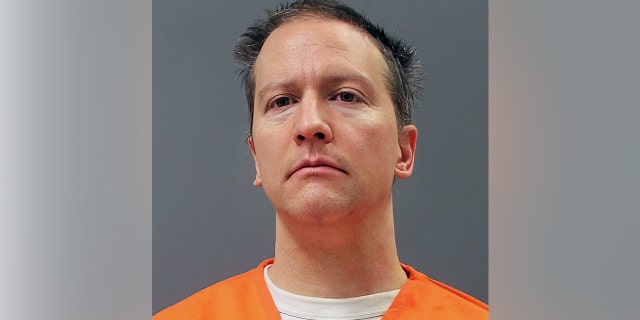Minnesota Attorney General Keith Ellison laid out the prosecution’s case Friday for a tougher sentence than the 12 1/2 years that are recommended for former minneapolis-st-paul” target=”_blank”>Minneapolis<, third-degree murder, and second-degree manslaughter on April 20 in the death of george-floyd” target=”_blank”>George Floyd<, Chauvin will only be sentenced for the most serious count, which is second-degree murder and carries a recommended sentence of 12 1/2 years.

Derek Chauvin is being held in custody following his conviction for the death of George Floyd. He is on "administrative segregation" status for his safety, corrections officials said.
(Minnesota Department of Corrections)
Prosecutors are seeking an “upward sentencing departure” based on “five aggravating factors.”
They argue that Floyd was a “particularly vulnerable victim” as officers handcuffed his “arms behind his back and held him down in the prone position, with his chest against the pavement.”
Eric Nelson, Chauvin’s attorney, disputed this claim in a memo Friday, arguing that “simply being handcuffed” did not make Floyd particularly vulnerable. He also noted that Floyd initially resisted arrest.
FORMER MINNEAPOLIS POLICE OFFICER DEREK CHAUVIN’S SENTENCING DATE PUSHED BACK TO JUNE 25
The second aggravating factor is that Floyd was treated with “particular cruelty.”
“Despite Mr. Floyd’s repeated pleas that he could not breathe, and despite the repeated pleas of bystanders on the scene, Defendant pressed his knee into Mr. Floyd’s neck and upper back for nine minutes and 29 seconds,” prosecutors wrote in Friday’s filing.
Nelson argued that the presence of bystanders “does not support the aggravating factor of particular cruelty” and disputed prosectutors’ claim that Chauvin did not provide medical help since he called an ambulance.

People cheer after a guilty verdict was announced at the trial of former Minneapolis police Officer Derek Chauvin for the 2020 death of George Floyd, Tuesday, April 20, 2021, in Minneapolis, Minn. (AP Photo/Morry Gash)
Prosecutors also argued that Chauvin abused his position of authority as a crime, committed the crime with three other people, and killed Floyd while in the presence of multiple children.
“The facts proven beyond a reasonable doubt at trial demonstrate that five aggravating factors support an upward sentencing departure,” prosecutors wrote.
Nelson disputed these factors as well, noting that the other three officers involved have not been convicted of any crimes.
Chauvin is facing a maximum sentence of 40 years in prison for the most serious count of second-degree murder. The recommended sentence for someone convicted of second-degree murder with no criminal record is 12 1/2 years, though the advisory range is between 10 years and eight months and 15 years.
Prisoners in Minnesota with good behavior become eligible for release under parole after serving two-thirds of their sentence.
Chauvin is currently being held in a single cell for his own safety at Minnesota’s only maximum-security prison, Oak Park Heights.
The Associated Press contributed to this report.
 Iktodaypk Latest international news, sport and comment
Iktodaypk Latest international news, sport and comment






